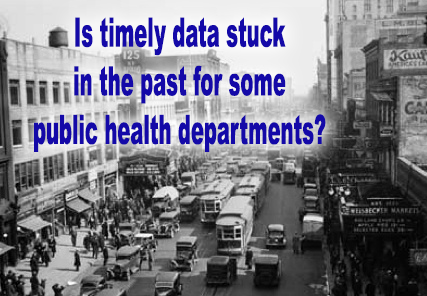Posted By Monique Dever On December 30, 2014
Timely data is difficult to obtain for urban public health departments

With federal meaningful use Electronic Health Record (EHR) mandates, and connectivity via the Health Information Exchange (HIE), real time data should be available to all public health departments. In an ideal connected world, all public health departments and health agencies would be collecting data and sharing de-identified data to rid the world of infectious and chronic diseases. In reality, many public health departments are already working toward achieving this goal. There are however, still some serious problems in the larger city departments where urban communities are lagging even further behind.
According to a study published in the Journal of Public Health Management and Practice, large city local health departments (LHDs) still do not have quick access to data that is necessary to serve vulnerable populations. The study states that “all participants described the need for more timely data that could be geocoded at a neighborhood or census tract level to more effectively target their resources.”
The study involved 45 leaders from 16 health departments from the Big City Health Coalition (BCHD). Collectively these departments oversee the health of 15% of the nation’s population. Many of these departments did not use HIE or EHR data, and access to local and state data was not readily available. These LHDs still use other sources to collect data such as schools, hospitals and city-level agencies, but this data can often be very delayed by 2 to 4 years. The study concluded that “public health leaders who participated in this study supported the use of electronic health data to fill the many gaps in local health information. However, clear strategies and “how-to” guides are needed to facilitate partnerships between health care providers and public health leaders to maximize the potential impact of EHRs on population health.”
Adoption of EHRs by local health departments is lagging behind. To make matters worse, general purpose EHRs are not geared for collecting as well as reporting of needed public health data.
Some large metro health departments are taking lead by deploying innovative public health-focused EHR. For example, Durham County Health Department has deployed a GIS Health Mapping app which displays the real time data from the EHR on the county map. Additionally, to avoid duplicate patients, Durham uniquely identifies each patient via a palm scanner and geocodes the patient address during patient registration. With forward looking leaders at metro health departments, we are getting closer to the ideal world of providing public health leaders real time data they need to improve population health.
Read the full study here.